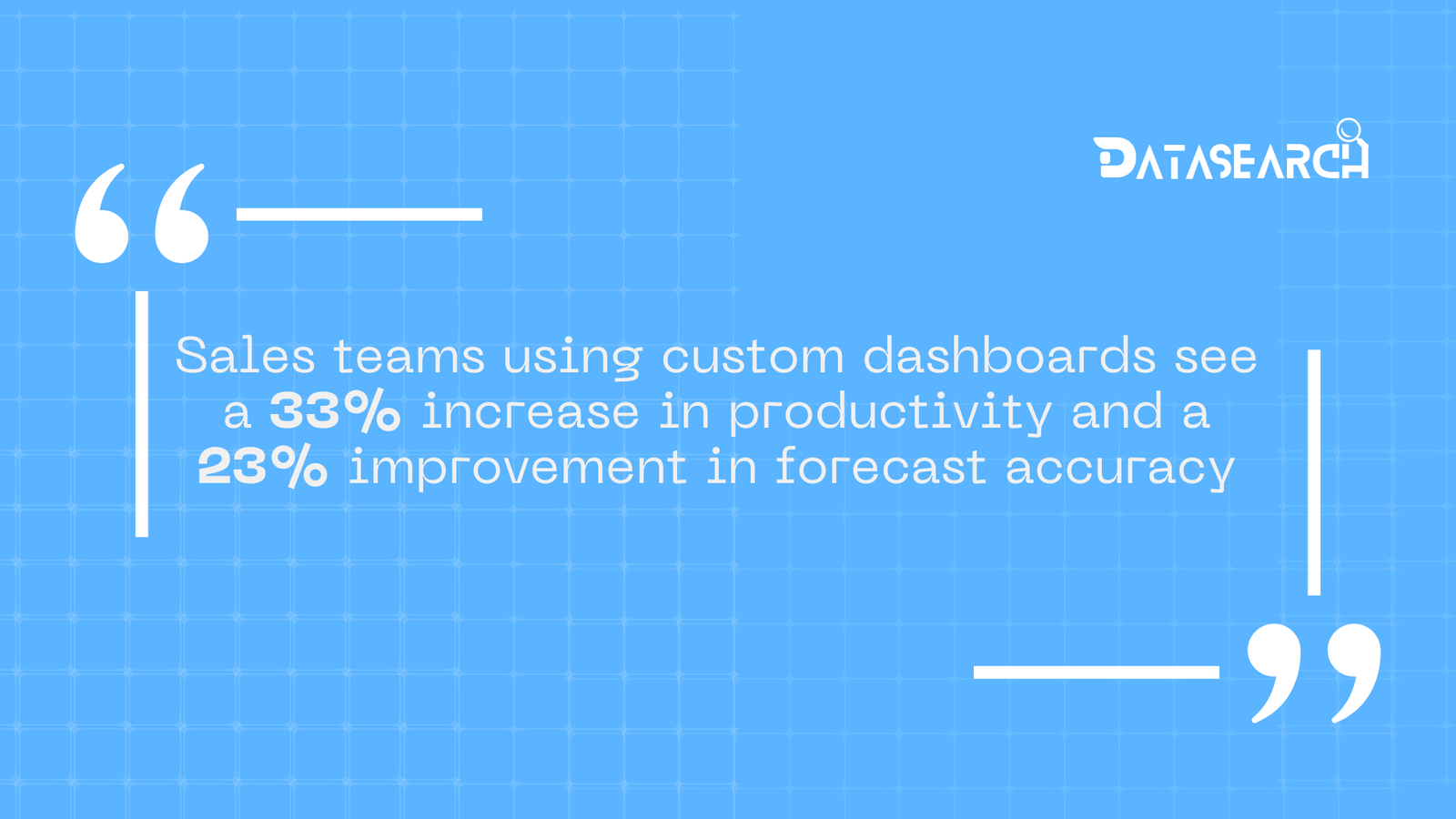In today’s data-driven world, sales teams are under increasing pressure to perform efficiently while managing large amounts of information. One of the most effective tools for optimizing performance and decision-making is the use of custom data dashboards. By providing real-time insights, streamlining reporting processes, and enhancing decision-making, custom dashboards empower sales teams to make smarter, faster, and more informed decisions. Here’s how leveraging these dashboards can transform your sales operations.
1. Real-Time Performance Tracking
Custom data dashboards give sales teams immediate access to performance metrics, allowing them to track progress in real time. From individual sales reps to entire teams, dashboards can display key metrics like conversion rates, lead response times, deal statuses, and revenue targets.
For example, a dashboard that tracks daily sales performance compared to monthly goals keeps the team aligned and focused on reaching targets. The real-time visibility eliminates guesswork, enabling sales reps and managers to identify areas that need attention before they become problems.
2. Streamlining Reporting and Data Access
One of the biggest challenges sales teams face is accessing the right data quickly and efficiently. Custom dashboards solve this by pulling data from multiple sources into one centralized platform, reducing the need for manual reporting and data silos.
Sales dashboards can integrate CRM data, marketing analytics, and financial information, providing a unified view of business performance. This not only saves time but ensures that sales teams are working with the most up-to-date information, leading to better planning and more accurate forecasts.
3. Enhancing Decision-Making with Actionable Insights
Custom data dashboards are designed to offer actionable insights, helping sales teams make better decisions at every stage of the sales cycle. For instance, a dashboard might highlight which lead sources are generating the most revenue or identify where deals are getting stuck in the pipeline.
These insights enable sales managers to adjust strategies based on data-driven decisions rather than intuition. For example, if a dashboard shows that deals tend to stall during the negotiation phase, sales leaders can focus on refining negotiation tactics or providing additional training to their teams.
4. Personalized Metrics for Individual Sales Reps
Sales teams are often made up of individuals with different strengths, weaknesses, and goals. Custom dashboards can be tailored to each sales rep, giving them personalized insights into their own performance. This helps them understand where they excel and where they need improvement, allowing for more targeted development and growth.
For example, one rep may benefit from tracking the number of follow-up emails they send, while another might focus on improving conversion rates for high-value leads. By customizing dashboards to reflect individual performance metrics, businesses can encourage self-improvement and accountability within the team.
5. Improving Sales Forecasting and Pipeline Management
A well-designed custom dashboard can significantly improve sales forecasting accuracy by providing an up-to-date view of the sales pipeline. Dashboards track how deals progress through each stage of the funnel, making it easier to predict future revenue based on historical data, current trends, and upcoming opportunities.
For example, a dashboard that visualizes the entire sales pipeline allows sales managers to quickly identify bottlenecks, potential deal losses, or upcoming opportunities. This leads to more accurate forecasts and better resource allocation, helping sales teams stay ahead of their targets.
6. Increasing Accountability and Motivation
Custom data dashboards also promote accountability within sales teams by making performance metrics visible and transparent. When sales reps can see their progress compared to their peers, it encourages healthy competition and motivates them to reach their goals.
Dashboards can be designed to display leaderboards, highlighting top performers or showing how individuals are tracking toward personal targets. This fosters a culture of accountability, where team members are motivated to stay on top of their performance and continuously improve.
7. Integrating Predictive Analytics for Smarter Selling
By integrating predictive analytics into custom dashboards, sales teams can take their decision-making to the next level. Predictive analytics can forecast which leads are most likely to convert, which customers may be at risk of churn, or which products are likely to see increased demand.
For instance, a dashboard could alert sales reps when a lead has shown strong engagement signals or if a current customer’s behavior indicates they may need additional support. These predictive insights enable sales teams to act proactively, improving conversion rates and customer retention.
How DataSearch Can Help Empower Your Sales Teams with Custom Data Dashboards
DataSearch.pro offers customized data dashboard solutions tailored to the specific needs of your sales teams. Our advanced analytics platform integrates real-time data from multiple sources, providing actionable insights that help sales teams optimize performance, streamline reporting, and make smarter decisions. Whether you’re looking to improve forecasting, boost accountability, or leverage predictive analytics, DataSearch has the tools you need to succeed.
Ready to empower your sales teams with custom data dashboards? Visit DataSearch.pro today to learn more.




